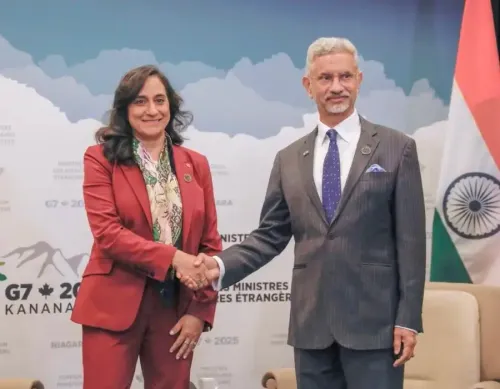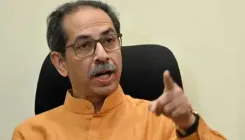Is Bangladesh Facing Rising Islamist Militancy Due to Growing Pakistani Links?

Synopsis
Key Takeaways
- Rising Islamist militancy poses significant challenges in Bangladesh.
- Growing ties with Pakistan's intelligence raise concerns.
- Social media amplifies extremist narratives.
- Political changes may destabilize regional security.
- Bangladesh faces critical decisions about its future identity.
Dhaka, Nov 11 (NationPress) Bangladesh is currently facing serious challenges as it contends with the resurgence of a formidable Islamist movement and an escalating wave of Islamist militancy that has intensified following the removal of the former Prime Minister Sheikh Hasina, according to a report published on Tuesday.
The report indicates that the strengthening ties between Pakistan's intelligence agencies and Bangladesh's radical Islamist party Jamaat-e-Islami have revealed a deeply rooted transnational Islamist network.
As highlighted by the prominent Indian think tank Usanas Foundation, Jamaat’s student faction, Islami Chhatra Shibir, has frequently been implicated in acts of violence and extremist recruitment, often collaborating with Pakistan’s Jamaat-e-Islami and the terrorist group Lashkar-e-Taiba (LeT).
During a rally in Gujranwala, Pakistan on May 28, US-designated terrorist Muzammil Iqbal Hashmi, linked to LeT, asserted that the terror organization had partnered with Islami Chhatra Shibir to provoke campus unrest and political instability in Bangladesh, contributing to the downfall of Sheikh Hasina’s administration.
The report notes, “Since Muhammad Yunus took on the role of Chief Advisor to the interim government, he has fostered closer ties with Pakistan, allegedly paving the way for the influence of Pakistan-supported terrorist and Islamist factions. Bangladesh has strategically distanced itself from India due to this newfound camaraderie with Pakistan. The strengthening of Pakistan-Bangladesh relations is evident from Yunus's meetings with Pakistani Prime Minister Shehbaz Sharif and Field Marshal Asim Munir, leading to notable advancements in trade, relaxed visa policies, and even joint military training initiatives between the two countries,” the report elaborated.
In 2025, prominent Pakistani figures, including Foreign Minister Ishaq Dar and high-ranking military official General Sahir Shamshad Mirza, visited Bangladesh. The report suggests that these meetings with top military leaders and members of Pakistan's Inter-Services Intelligence (ISI) indicate a potential alliance with Islamist factions—an evolution that could jeopardize Bangladesh's relationship with India.
Furthermore, it emphasizes that social media has been instrumental in amplifying Islamist narratives and integrating them into public dialogue. The political and educational transformations in Bangladesh have empowered Jamaat to solidify its status as a significant socio-political force in the nation, thereby promoting the spread of Islamic extremism.
“The shifting political landscape in Bangladesh carries substantial implications for regional security, especially concerning India. This transition facilitates the rise of extremist ideologies and cross-border terrorism, raising urgent concerns regarding security along India’s northeastern frontier. As regional security dynamics continue to evolve, Bangladesh is increasingly destabilized due to the consolidation of Islamist power. Consequently, the nation faces a crucial choice: uphold its pluralistic democratic identity or nurture the religious radicalism of Jamaat-e-Islami, with consequences for both regional and global stability,” the report concludes.









